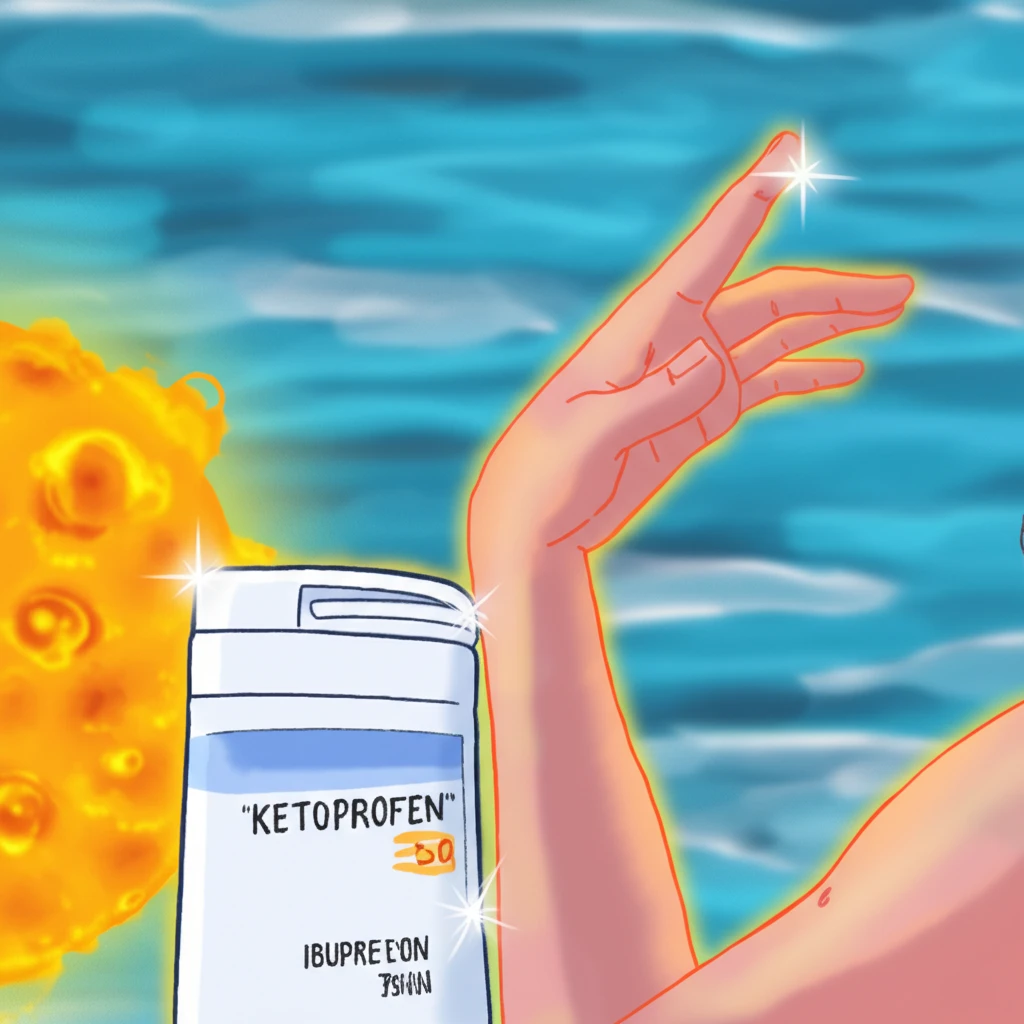
Sunscreen Sabotage: Are Your Pain Relievers Making You Burn?
"Uncover the shocking link between common NSAIDs like ibuprofen and ketoprofen, and increased UV sensitivity. Learn how to protect your skin!"
We all know the importance of sunscreen, hats, and sunglasses for shielding ourselves from the sun's harmful rays. But what if some everyday medications could be undermining our best efforts at sun protection? Surprisingly, certain common drugs, particularly nonsteroidal anti-inflammatory drugs (NSAIDs) like ibuprofen and ketoprofen, can increase your sensitivity to ultraviolet (UV) radiation.
Ibuprofen and ketoprofen are widely used to relieve pain, reduce inflammation, and lower fever. They're the go-to remedies for headaches, muscle aches, and arthritis. However, these drugs come with a hidden risk: photosensitivity. This means that they can make your skin more vulnerable to the sun's damaging effects, potentially leading to more severe sunburns and long-term skin damage.
Recent scientific research has shed light on the mechanisms behind this photosensitizing effect. By understanding how these drugs interact with UV radiation at a molecular level, we can take smarter precautions and protect our skin more effectively. Let's dive into the science and discover how to stay sun-safe while managing pain and inflammation.
Ibuprofen and Ketoprofen: How Do They Increase Sun Sensitivity?

The study titled "Ibuprofen and ketoprofen potentiate UVA-induced cell death by a photosensitization process", published in Scientific Reports, explored how ibuprofen and ketoprofen react when exposed to UVA radiation. Researchers discovered that these drugs can trigger photochemical pathways that amplify the sun's harmful effects on skin cells.
- Ketoprofen's Double-Edged Sword: Ketoprofen, which contains a benzophenone core (also a UV filter, ironically), produces singlet oxygen when exposed to UV light. This singlet oxygen is a highly reactive molecule that can damage cells.
- Radical Reactions with Both Drugs: Both ibuprofen and ketoprofen can undergo photodissociation, a process where the drug molecules break apart and create highly reactive radicals. These radicals can cause significant cellular damage.
- DNA Interactions: The study also found that ibuprofen and ketoprofen can form metastable aggregates with DNA, further increasing the risk of cellular damage upon UV exposure.
Practical Steps to Stay Safe
The findings underscore the importance of being extra vigilant about sun protection when using ibuprofen or ketoprofen, especially in topical forms. While the risk from oral medications is lower due to the skin's natural UV filtering, topical applications deliver the drug directly to the skin, increasing the potential for photosensitivity. The study's authors emphasize the need for careful analysis and preventative measures to minimize the photosensitization activity of these drugs. The following practices will further assist with prevention and safety: <ul> <li><b>Sunscreen is Your Best Friend:</b> Use a broad-spectrum sunscreen with an SPF of 30 or higher, and apply it generously and frequently, especially when outdoors.</li> <li><b>Timing Matters:</b> If possible, avoid taking these medications during peak sun exposure hours. If you must take them, be extra cautious about sun protection.</li> <li><b>Protective Clothing:</b> Wear hats, sunglasses, and long sleeves to minimize direct sun exposure.</li> <li><b>Be Aware of Topical Products:</b> Pay close attention to the ingredients in your topical pain relief creams and gels. If they contain ibuprofen or ketoprofen, take extra precautions.</li> <li><b>Consult Your Doctor:</b> If you have concerns about photosensitivity or are taking multiple medications, talk to your healthcare provider for personalized advice.</li> </ul> By staying informed and taking proactive steps, you can enjoy the benefits of these medications without compromising your skin's health. Remember, a little extra care can go a long way in protecting yourself from the sun's harmful effects. Always check with your health professional for further concerns or help.
